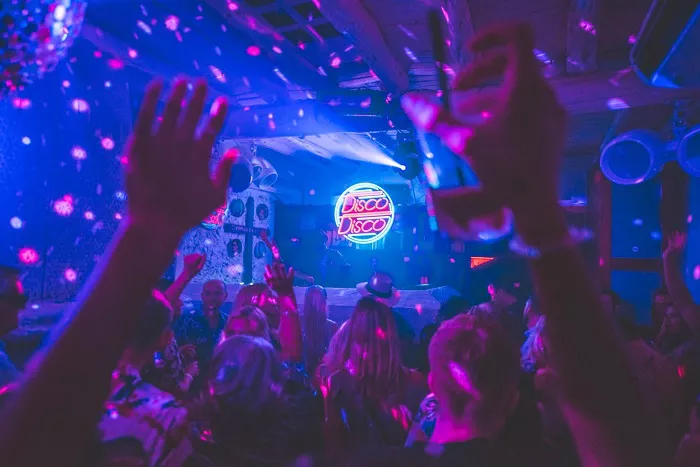Disco Music: a genre that grooves through generations, igniting dance floors worldwide with its infectious beats and vibrant rhythms. But do you know who started disco music? In this article, we will delve into the intriguing history of disco music’s inception, tracing its roots back to the underground clubs of the 1970s and the visionaries who sparked a musical revolution.
The Birth of a Groove
Disco Music first emerged on the music scene in the early 1970s. It was a musical movement that celebrated freedom, self-expression, and the joy of dancing. Disco’s roots can be traced to various music genres, including funk, soul, and R&B. However, it was the unique fusion of these styles that gave birth to the genre we now know as disco music.
One of the pioneers responsible for shaping the early disco music sound was Tom Moulton. In the early 1970s, Moulton, a music producer and remixer, started experimenting with extending the dance-friendly sections of songs. His innovation led to the creation of the extended disco mix, a format that became a hallmark of the genre. Moulton’s work on remixing tracks like “Love is the Message” by MFSB laid the foundation for the longer, more danceable tracks that became synonymous with disco music.
The Discotheque Revolution
Disco music found its true home in the nightclub scene. Discotheques, as they were called, were the epicenters of this musical revolution. One of the most famous discotheques was the Paradise Garage in New York City, which opened its doors in 1977. This venue was known for its cutting-edge sound system and DJ Larry Levan, who played a pivotal role in shaping the disco music culture.
In these underground clubs, the soulful and danceable tunes of disco music resonated with a diverse audience. The genre became a unifying force, bringing together people of different backgrounds and orientations. It was in these dimly lit, bass-thumping spaces that the disco ball became an iconic symbol of the era, reflecting the shimmering allure of disco music.
The Dance of Liberation
Disco music wasn’t just about groovy beats and dazzling lights; it was a movement of liberation. The 1970s were a time of social change and cultural upheaval, and disco provided an escape from the challenges of the era. This liberation was symbolized by the “disco divas” and “disco queens” who took center stage.
One of the most celebrated disco music icons was Donna Summer, often referred to as the “Queen of Disco.” Her hit songs like “I Feel Love” and “Last Dance” showcased her powerful vocals and the pulsating rhythms of disco. Summer’s success paved the way for other female artists in the genre, such as Gloria Gaynor and Diana Ross, who also became synonymous with disco music.
The Birth of Disco Fashion
Disco music wasn’t just about the music; it was a lifestyle. The disco fashion of the 1970s was as vibrant and eclectic as the music itself. The dance floors were filled with people donning shimmering dresses, wide-legged pants, platform shoes, and, of course, the quintessential disco ball-inspired fashion.
The disco fashion movement was characterized by its boldness and individuality. People expressed themselves through their clothing, embracing a sense of freedom and self-expression that mirrored the spirit of disco music. The dance floors became a runway for showcasing extravagant outfits, and fashion designers like Halston and Giorgio Armani drew inspiration from the disco scene.
The Backlash Against Disco
As disco music continued to gain popularity throughout the mid-1970s, it also faced a growing backlash. Some music critics and rock enthusiasts dismissed disco as shallow and commercial, leading to the infamous “Disco Sucks” movement. This backlash culminated in the notorious “Disco Demolition Night” at Chicago’s Comiskey Park in 1979, where a crate of disco records was blown up on the field, symbolizing a turning point in disco music’s history.
However, despite the backlash, disco music persisted. It had become more than just a musical genre; it was a cultural phenomenon that transcended music itself. Disco’s influence could be heard in various genres, from pop to electronic dance music, and its impact on dance and fashion endured.
The Evolution of Disco
While the disco craze of the 1970s eventually waned, the spirit of disco music lived on in different forms. Disco’s influence can be heard in the music of artists like Madonna, who blended pop with disco elements in hits like “Into the Groove.” Moreover, the electronic dance music (EDM) revolution of the late 20th century and early 21st century owes a debt to the disco pioneers.
In recent years, a resurgence of interest in disco music has emerged, with contemporary artists and producers incorporating disco-inspired sounds into their music. This revival highlights the enduring appeal of the genre and its ability to make people dance, regardless of the era.
Conclusion
In conclusion, the origins of disco music are a testament to the power of music to bring people together and create a sense of liberation and joy. While the exact question of who started disco music may not have a single answer, it is clear that it was a collaborative effort by many talented individuals, from DJs and producers to iconic artists and fashion designers.
Disco music emerged from the vibrant cultural landscape of the 1970s, and its influence continues to be felt in today’s music and fashion scenes. The disco ball still spins, casting its shimmering light on new generations of dancers who groove to the infectious beats and rhythms of this timeless genre. As we celebrate the pioneers of disco music, we also celebrate the enduring legacy of a genre that will forever be associated with the joy of dance and the spirit of liberation. Disco lives on!

